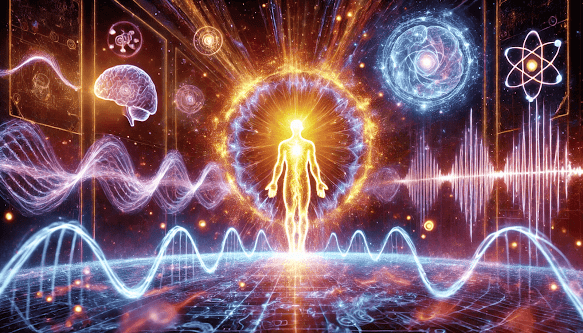The Power of Forgiveness – Beyond Belief and Identity
Have you ever wondered how
forgiveness shapes our identity and helps us overcome the most challenging
conflicts in life? Can letting go truly set us free, or is it just a myth we
tell ourselves? “The Blue Street Stories”
by Arthur L. Jenkins takes us on a journey
where forgiveness isn’t just a benefit but a lifeline for characters tackling a
world filled with societal judgment.
In these stories, forgiveness is
more than a pathway to peace—it's a form of revolution against a society that
has rejected them.
But what does forgiveness look like
when everything, including religion and community, seems to turn its back on
you? As we take a step into this world, you’ll discover how the characters in
the stories use the power of forgiveness to reclaim their identities and find
inner peace.
Forgiveness as a Form of Liberation
In a world where many characters
are judged harshly for their identities and choices, forgiveness appears as an
unexpected form of liberation. It's about letting go of the guilt and shame
forced by societal norms, especially those concerning sexuality and identity.
By forgiving themselves, they break
free from the chains of external validation and accept their authentic selves.
It's a reminder that sometimes, the most divine act of forgiveness comes from
within.
Judgment vs. Forgiveness
Society's judgment is like a
stubborn stain – it sticks to people, especially those who don't fit into the
neat little boxes of societal norms. In “The
Blue Street Stories,” we see how this judgment comes from family, religion,
and community. The individuals are often forced to face a world that views them
as others.
The Journey of Forgiveness
Finding
Inner Peace!
Forgiveness is not an easy path;
it's a journey filled with emotional breakdowns and moments of doubt. Yet, it’s
this journey that helps in finding true inner peace. They learn that
forgiveness is not about excusing the wrongs done to them but about freeing
themselves from the weight of those wrongs.
One of the most exciting aspects is
how the characters use forgiveness as a means to heal from the pain caused by
others. By forgiving those who have wronged them, they take away the power that
these people or institutions have over their lives.
Forgiveness Beyond Belief and Identity
What's prominent in “The Blue Street Stories” is that
forgiveness goes beyond the boundaries of belief and identity. Characters who
have been disregarded due to their sexuality or race find that forgiveness is
much more than these barriers. It’s not tied to a particular religion but is a
deeply personal and human experience.
Forgiveness allows us to connect
with a deeper sense of self that is not defined by societal labels. They find
that by forgiving, they are not conforming to society's expectations but rather
forging a new path that is uniquely their own.
The Healing Power of Forgiveness
Forgiveness acts as an ointment for the wounds caused by society's harsh judgments. Through this act, the characters begin to reclaim the parts of themselves that were lost to shame and rejection. They find that while society or religion may fail them, forgiveness is a tool they can use to rebuild their lives and find a moment of peace.
Are you ready to explore a powerful
collection of stories that challenge societal norms and explore the true
essence of forgiveness? “The Blue Street Stories” by Arthur L. Jenkins
offers a raw, unfiltered look at the complexities of identity, belief, and the
journey to self-acceptance. Get your copy today and take the first step toward
a deeper understanding of the human experience.
Conclusion
So, where does that leave us? If these characters can find it within themselves to forgive despite facing immense societal rejection, perhaps there's a lesson for us all. Forgiveness doesn't mean forgetting—it means choosing to release the hold that pain and anger have over us.




Comments
Post a Comment